
The draft law granting the FSB oversight over scientists’ international collaborations appears to be more essential for the Ministry of Education and Science and the Russian Academy of Sciences (RAS) than for the security service itself. However, the document’s drafters failed to account for the substantial resources required to develop and maintain these “government services for monitoring scientists.” It is already clear that, in its current form, the new legal framework will complicate operations for all parties involved: researchers, officials, and law enforcement. This conclusion was reached by T-invariant after analyzing the proposed amendments to the federal law “On Science and State Scientific and Technical Policy,” along with accompanying assessments from federal agencies, the Kurchatov Institute National Research Center, and the RAS. If adopted, the law will fundamentally alter how universities and research institutes manage any interactions with foreign partners. “Even publishing in an international journal could be construed as sharing information with foreign states,” warns a prominent RAS member.
Comrade Major Gets a Personal Account in EGISU NIOKTR
Under the amendments, all universities, research institutes, and other entities engaged in scientific, technical, or innovative activities—whether state-run or private—must submit details of any “planned work” involving foreign individuals or organizations. This requirement also applies to Russian legal entities whose founders include foreign nationals or organizations.
The data must be uploaded to EGISU NIOKTR (Unified State Information System for Recording Civilian Research, Development, and Technological Work), where security officials will assess proposed international scientific collaborations for potential threats to national security. As stated in the bill’s supporting documents: “The approval mechanism will be implemented in EGISU NIOKTR by creating a personal account for the FSB, similar to the one currently used by the RAS.”
Notably, even agreements or projects involving foreign entities that entail “no financial obligations” for Russian scientific organizations will still require FSB clearance through EGISU NIOKTR.
Comrade Major Acknowledges Retroactive Enforcement
The bill emphasizes that “the FSB’s oversight mechanism will strengthen control over the transfer of scientific results abroad without infringing on academic freedom or hindering institutional operations.” The FSB plans to conduct its reviews “in parallel with the RAS’s expert evaluations via EGISU NIOKTR.”
Since research funding comes through various channels (state assignments, subsidies, grants, etc.), the FSB’s checks will occur at multiple stages:
- During competitive bidding planning (to avoid delays in the bidding process);
- During bid evaluation (alongside expert assessments);
- At contract signing (though this risks causing delays for state contractors).
The Russian Presidential Directorate for Science and Education Policy has requested that its concerns about the bill be addressed. Under existing legislation (Russian Government Directive from March 5, 2022), Russian universities and research institutes are already barred from approving any international cooperation agreements if the foreign participant—whether an individual or legal entity—meets certain unspecified criteria:
- Are registered in an “unfriendly” state (49 countries in total);
- Hold a passport from an “unfriendly” country;
- Are affiliated with “undesirable organizations”;
- Pose a threat to Russia’s national security;
- Are barred from entering Russia;
- Have unresolved criminal convictions in Russia.
In her official review of the bill, Elena Nechaeva, Deputy Head of the Presidential Directorate for Science and Education Policy, emphasized that “these preexisting limitations must be factored into the new legislation.”
Comrade Major Doesn’t Call Twice
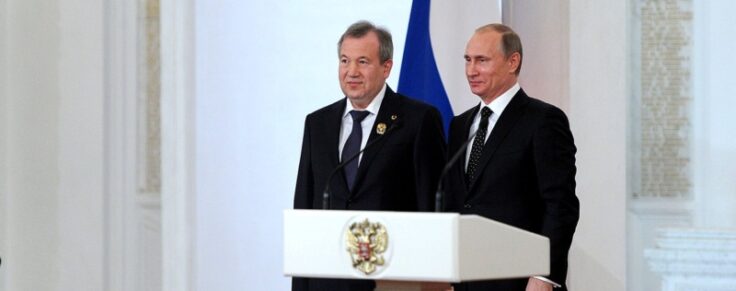
Representatives from the Kurchatov Institute (Russia’s lead scientific body for international “megascience” projects) and the Russian Academy of Sciences (RAS) have raised no objections to the bill, as reflected in their official assessments. RAS President Gennady Krasnikov, an academician, endorsed the document, stating it “aligns with the advancement of national interests and the global promotion of Russian scientific achievements.”
This is not the first instance of the FSB tightening its grip on scholars’ international contacts. Nearly a decade ago, researchers from Moscow State University (MSU) revealed to Nature that their publications were required to undergo FSB pre-screening before submission to academic journals or conferences. While MSU administration and officials from the Ministry of Education and Science downplayed concerns, the move coincided with the May 2015 expansion of state secrecy laws—implemented during Russia’s first phase of aggression in Ukraine. Even then, critics noted the irony. As late academic and human rights advocate Yuri Ryzhov remarked: “Every university has—and always will have—a security office or ‘first department’ overseeing secrecy. But even in Soviet times, they didn’t vet scientific articles.”
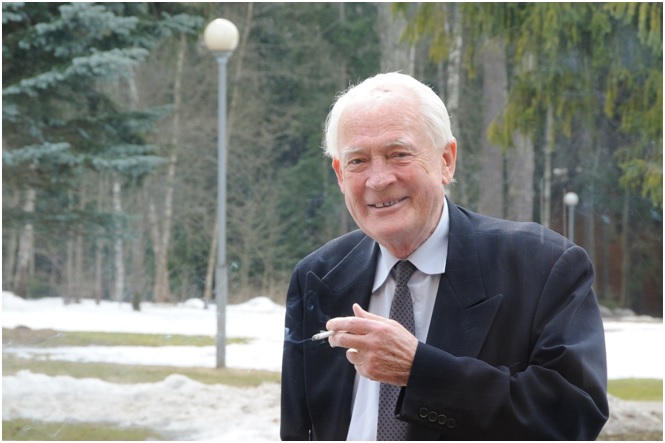
“Yes, I remember the 2015 events well,” says a mathematician from a leading Moscow university, speaking to T-invariant on condition of anonymity. “I was summoned to the rector’s office and made to sign an acknowledgment of the new university directive. Technically, these “expertise certificates”—mandatory approvals for publications—were never formally abolished. In practice, many (though not all) Russian journals stopped requiring them in the 1990s. Over the last few years, some have quietly reinstated the practice, but certainly not all. We published abroad without any expert clearance—even after 2015. The strict requirement for approval certificates on everything, including abstracts for domestic conferences and any foreign publications or presentations, only became enforced at my university after my final departure in 2022-2023.”
A physicist from a prominent Moscow-region research institute has also noticed shifts since 2015. “Our leadership is relatively reasonable. They handle the formal reporting without harassing staff. But nine years ago, every department got a commission that stamps out boilerplate approvals certifying that no research contains state secrets before any paper or presentation is submitted.”
“What worries me is that they might start squeezing out disloyal scientists from grant funding. They could add another filter to keep people with strong civic views from leading projects. I’ve already felt it—I’m now barred from events requiring FSO [Federal Protective Service] clearance, even though I have no administrative cases or arrests against me. My guess? It’s because I ran for Moscow’s municipal council in 2022. Or maybe because I signed an anti-war letter,” the physicist explains.
Other researchers in Moscow and across Russia, interviewed by T-invariant, report similar increases in scrutiny from their institutions’ “First Departments” (security oversight units). A physicist from St. Petersburg notes that the presence of “people in uniforms” in academic life has grown significantly since the 2022 invasion of Ukraine.
“Yes, they literally dropped on our heads when the war began. We’d never interacted with them before. For years, there were rumors about needing approvals, but in reality, nothing happened. Officially, every publication had to be “cleared” by the higher-ups, but nobody actually checked. Who exactly was supposed to review our papers? No idea—we just published and then retroactively logged them in the university’s database. In all my years here, I only went through the procedure once because a Russian journal demanded proof of clearance,” a scientist told T-invariant.
A biologist working at a Siberian research institute disagrees, arguing that the FSB’s presence never really faded over the years.
“As far as I know, since Soviet times, every research institute—especially those doing “sensitive” work—and universities have always had a First Department. Ever since I started publishing in 1995, we’ve had to get expert approvals. Everyone treated it as a formality, but you still had to get that signature from that nondescript office labeled “First Department”,” a Siberian researcher explained.
“I find it odd when people say security oversight has tightened or returned. At our [Siberian] institute, it’s always been there. After every international conference, we had to fill out a form listing everyone we’d interacted with, plus “:suggestions for the national economy”—a mind-numbingly stupid requirement, but what could we do? At some point, these guys [from the First Department] started pressuring me to file regular ‘reports’—basically, to snitch on colleagues. I refused. More accurately, I told them to get lost.” Yet, as he notes, even following the First Department’s” procedures offers no protection: “As we’ve seen in all these treason trials over hypersonic tech, these pre-approved expert conclusions don’t save anyone from prosecution.”
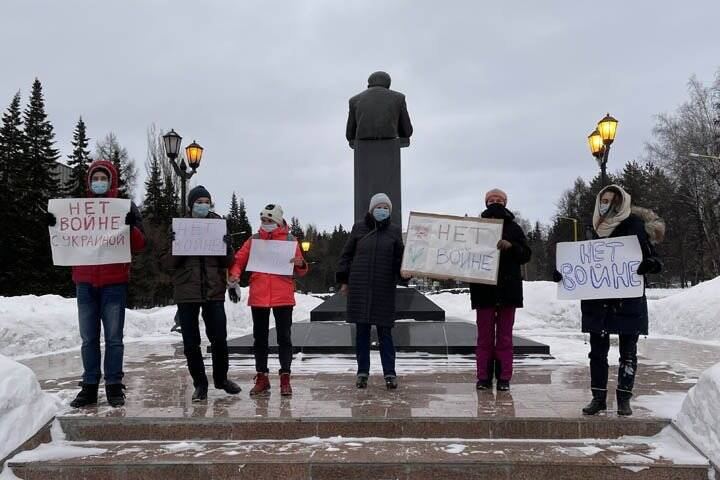
T-invariant has repeatedly reported that today, Russia’s FSB not only systematically persecutes scientists working on hypersonic technologies but has also initiated criminal cases against prominent researchers entirely unconnected to military applications. These scientists face prosecution for allegedly substandard research results or unproven donations to Alexei Navalny’s Anti-Corruption Foundation (FBK). In one case, the FSB sought a life sentence for a scientist, presenting as evidence mere possession of Ukrainian flag imagery. Mass persecutions have likewise targeted researchers who signed open letters against the war or appeared in leaked databases of Navalny’s foundation.
Yet since 2015, the FSB has not attempted new legislative measures to restrict international scientific collaboration. In practice, however, the agency has tightened its grip over all education and science sectors without legal reforms. Given today’s climate, further controls will likely face far less public resistance from scientists than a decade ago—indeed, many scholars interviewed by T-invariant privately express relief about the proposed new regulations. While RAS President Gennady Krasnikov endorsed the bill without open discussion, anonymous academy members suggest it might paradoxically improve conditions.
“Recently, there’s been a push to revive obsolete Soviet-era rules—formally never repealed but long ignored. Will this law help? Maybe it’ll shield scientists from FSB persecution and reduce criminal cases. Or perhaps it’ll backfire, branding even foreign journal publications as state treason,” remarks a senior academy member.
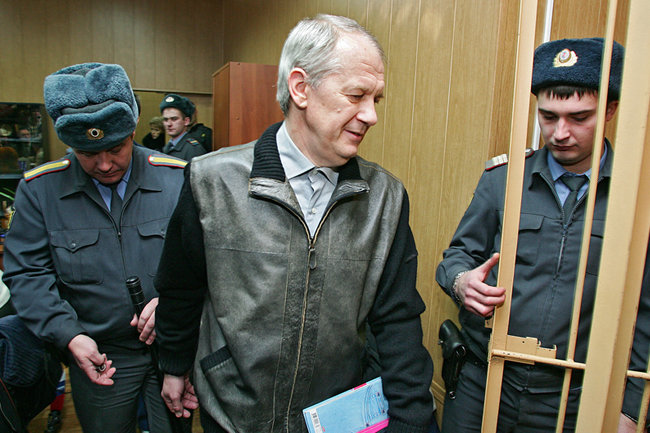
Comrade Major is Asked to Play by the Rules
In nearly all treason and state secrets cases against scientists, a glaring contradiction emerges: the accused’s contacts with foreign partners were explicitly approved by internal expert review committees. For years, these committees—staffed by researchers themselves—authorized publications, joint projects, and conference presentations that later became criminal evidence.
The paradox? While the FSB treats these approved collaborations as crimes, it has never charged the committees themselves with “aiding traitors.” Instead, it simply ignores their approvals when prosecuting scientists. This legal schizophrenia forced RAS and Ministry of Science to demand clearer rules—especially after the “hypersonics” arrests revealed even rule-following researchers weren’t safe.
The new legislation ostensibly shifts responsibility for “transferring scientific results abroad” to the FSB itself. But no one knows how this will work in practice. Of course, no one expects security officials to efficiently approve research topics, scientific collaborations, or swiftly determine which papers can be published. But there is cautious hope that fewer scientists will be imprisoned for presenting at conferences in China. Research will become far slower and more cumbersome—yet, perhaps, slightly safer. The FSB may block everything, but at least they won’t jail you. Will these hopes materialize? Most likely not, according to T-invariant’s sources.
Comrade Major Plays Open
The fundamental shift, notes physicist Andrei Tsaturian, is that the FSB now seeks to formally influence open civilian science—and is rewriting legislation to do so. While data on military, special, or dual-use R&D (registered under the EGISU system) will remain exempt from disclosure, the bill grants the FSB unprecedented access to previously “harder-to-control” scientific domains. This carve-out, explicitly stated in the draft’s supporting documents (Part 2, Article 7.1 of Federal Law No. 127 “On Science and State Scientific-Technical Policy”), reveals the true aim: streamlined surveillance disguised as bureaucracy.
The flip side is the chilling effect on international collaboration. “This is already happening,” observes economist Andrei Yakovlev (Harvard’s Davis Center). “But the idea that formalizing FSB oversight will protect scientists from suspicion is illusory. It will amplify fear. Foreign publications will plummet—researchers will self-censor to avoid ties with foreigners.”
A former Russian university rector confirms: “The proposed changes will inevitably slow cooperation. FSB clearance means red tape, paperwork nightmares—many institutions won’t even bother trying. The result? Deeper isolation from global science, accelerating Russia’s intellectual provincialism.”
The tightening of regulations on scientific projects is likely to produce several indirect consequences. First, the new mechanism will enable the FSB to demand increases in its personnel numbers and expand the practice of assigning its officers to universities and research institutions. Russian academia already suffers from an excess of such useless security personnel idling away their time, and their numbers may grow substantially in the near future. To justify their positions, these officers will inevitably burden researchers and administrators with excessive demands, diverting them from meaningful scientific work.
Second, we may see a further rise in criminal cases against Russian scientists, continuing the alarming persecution trend of recent years. On one hand, FSB officers will gain greater visibility into ongoing research projects. On the other hand, to validate their expanded role, they will have strong incentive to fabricate cases, thereby creating justification for even stricter legislation.
However, the explanatory note and financial justification accompanying the bill claim that implementing this federal law “will not require additional budget allocations from the Russian fiscal system” and “will operate within existing staff headcount limits.” On one hand, this phrasing appears deliberately crafted to ease the bill’s passage through the Finance Ministry. On the other, it suggests the security services themselves have little real interest in making the law work.
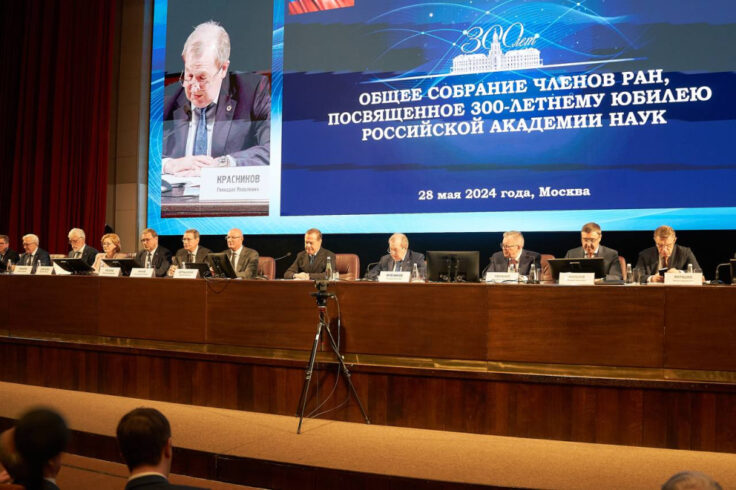
Comrade Major Doesn’t Need Extra Headaches
“This bill is likely far more important to the Ministry of Science and RAS than to the FSB,” suggests Alexander Kostinsky, Doctor of Physics and Mathematics. “Science administrators desperately want clearer rules for engaging with security services on foreign contacts—regardless of country. Yet many high-profile ‘spy’ cases have involved our ‘closest friend’—China.”
This demonstrates that Russia’s scientific community now recognizes this as a critical issue following a series of unjust convictions against researchers who had, in fact, obtained all required internal approvals.
However, the law’s implementation may yield unexpected consequences for both science administrators and researchers:
1. Expanded Surveillance
The legislation will grant FSB officers across Russia streamlined access to records of *all* existing contracts with foreign institutions and individuals.
2. Procedural Black Box
The approval process for future international collaborations remains deliberately vague. Ironically, the FSB itself likely opposes these measures—the law saddles them with both responsibility and bureaucratic burdens they previously avoided.
The pre-law status quo remains ideal for security agencies. Current international collaborations exist in a legal gray area – some researchers get approval for foreign trips while others don’t, some receive warnings about “unfriendly” countries while certain contacts get tacitly ignored. This controlled chaos makes it far easier to selectively target individuals than operating under transparent digital regulations.
Moreover, where would the FSB even find sufficient technical expertise to properly evaluate every BRICS collaboration or sanctions-circumventing tech transfer agreement? Fabricating a spy case through handpicked “loyal” experts to earn promotions is one thing; systematically approving complex research partnerships like some factory quality control clerk is entirely another. How will they conduct proper contract reviews when the bill explicitly rules out staff increases or additional funding?
The document’s lack of thoroughness, according to Kostinsky, is evident in the reaction to the Ministry of Digital Development’s proposal. On one hand, the Ministry requests approximately 18 million rubles to refine an electronic system that would provide personal accounts for the FSB. On the other hand, it fails to specify the annual costs of maintaining the system’s functionality. Yet in its review of the draft law, the Ministry insists on explicitly stating “details about the system’s operator.” “Apparently, the Ministry does not want operational expenses for maintaining this part of the system to fall on its shoulders,” Kostinsky suggests.
The Ministry also points out that the draft law “lacks any information security requirements,” which could lead to “leaks of confidential data”—despite the bill’s original purpose being to enhance security. Other risks associated with launching “public services for security agencies” include dependence on foreign technology and the potential failure to achieve the system’s intended objectives.
Ultimately, the law is drafted in a way that leaves key questions unanswered: what resources and under what rules scientific activities will be coordinated with the FSB. As a result, in its current form, it will save no one and help no one—only complicate work for all parties involved: scientists, officials, and security personnel. Worse yet, it may render international cooperation futile, reducing it to the levels seen during the Soviet era.